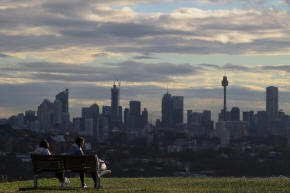Australia raises guard against foot and mouth disease after Indonesia
cases
 Send a link to a friend
Send a link to a friend
 [July 20, 2022]
SYDNEY (Reuters) - Australia on
Wednesday said it has stepped up protection against foot and mouth
disease at its international airports following an outbreak of the
disease in Indonesia. [July 20, 2022]
SYDNEY (Reuters) - Australia on
Wednesday said it has stepped up protection against foot and mouth
disease at its international airports following an outbreak of the
disease in Indonesia.
Travellers arriving in Australia from Indonesia will now be asked to
walk across sanitation foot mats at airports, the latest measure to ramp
up Australia’s biosecurity measures, the government said.
The mats will contain a citric acid solution designed to dislodge any
dirt from the sole of the shoe and cover it in the acid.
The move comes after foot and mouth viral fragments were detected in
meat goods that came into Australia recently from Indonesia and China,
Agriculture Minister Murray Watt said at a news conference.

“We have detected foot and mouth disease and African swine fever viral
fragments in a small number of pork products for sale in the Melbourne
CBD that were imported from China,” Watt said, adding that these were
detected during routine checks.
“In addition to this a passenger travelling from Indonesia has in recent
days been intercepted with a beef product that they didn’t declare which
tested positive for foot and mouth disease viral fragments," he added.
These viral fragments are not live and cannot be transmitted, he said.
[to top of second column]
|

People sit on a bench overlooking the city centre skyline amidst the
easing of the restrictions implemented to curb the spread of the
coronavirus disease (COVID-19) in Sydney, Australia June 29, 2020.
REUTERS/Loren Elliott/Files
 Watt also said despite these
findings Australia remains foot and mouth disease free.
Foot and mouth disease is a highly contagious
animal disease that affects cattle, sheep, goats and pigs but does
not pose a threat to humans. Government modelling projects a
widespread foot and mouth outbreak in Australia would have an
estimated direct economic impact of around A$80 billion ($55.3
billion).
More than 317,000 animals have been infected in 21 Indonesian
provinces, largely on the most populated islands of Java and
Sumatra, with more than 3,400 animals culled, according to
government data.
($1 = 1.4465 Australian dollars)
(Reporting by Praveen Menon; Editing by Christian Schmollinger)
[© 2022 Thomson Reuters. All rights
reserved.] This material may not be published,
broadcast, rewritten or redistributed.
Thompson Reuters is solely responsible for this content.
 |